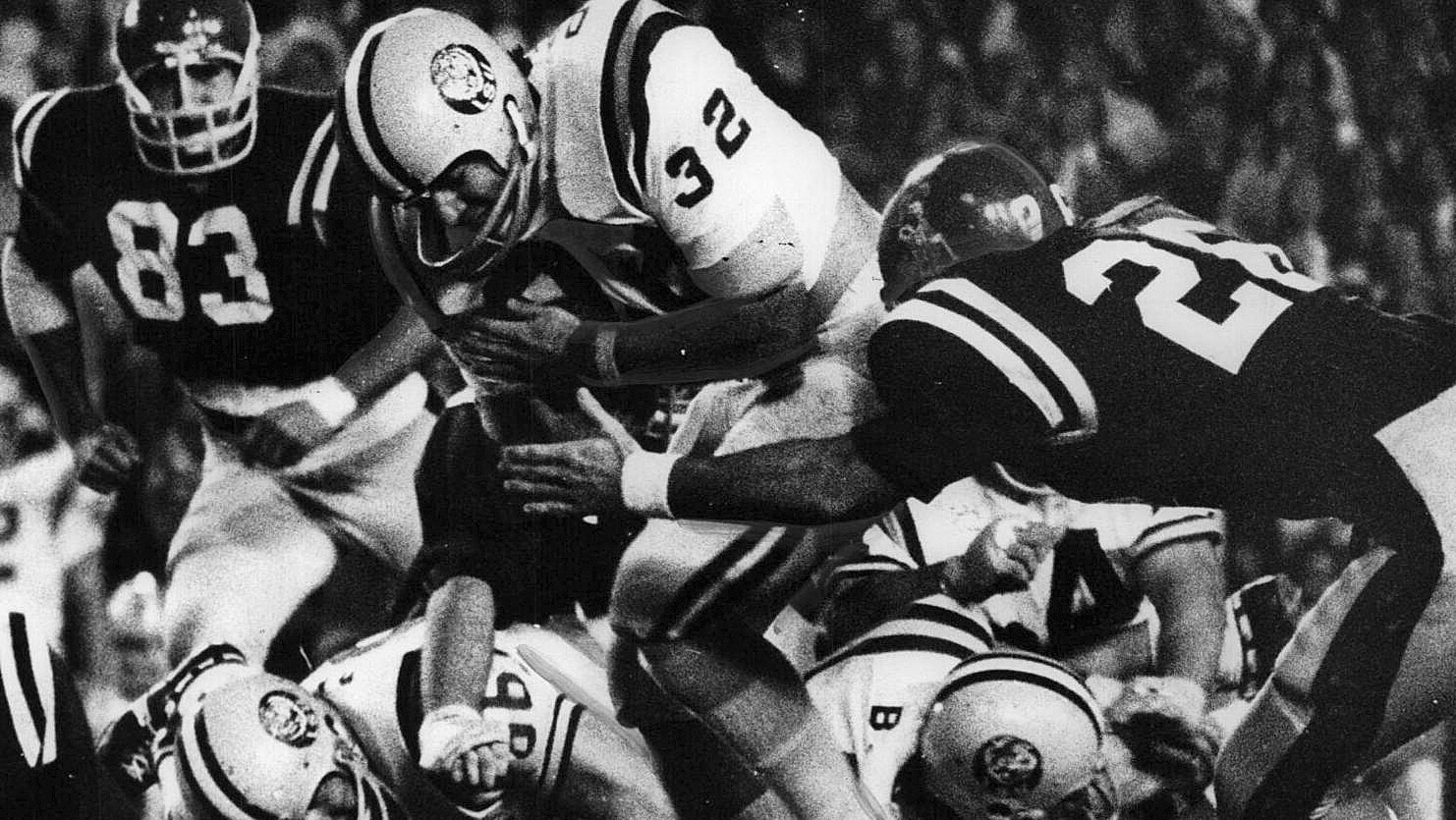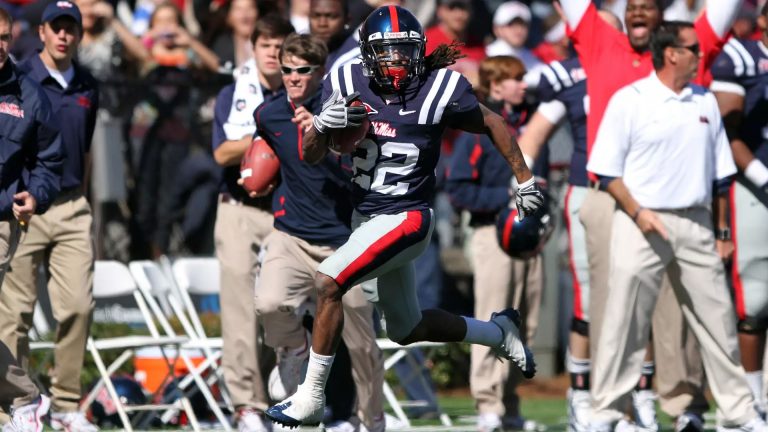
by Melvin Arrington
Baton Rouge, Louisiana. November 4, 1972. Ole Miss vs. LSU on a Saturday night in Tiger Stadium. Although that contest took place fifty years ago, I don’t think older Rebel fans will ever forget it. If the younger ones haven’t heard about that debacle, they need to know what happened the night when time stood still.
I’m keenly aware how much the annual matchup with Mississippi State has intensified in recent decades, but in my book the one team we’ve just got to beat every year is that bunch from bayou country. Ever since the 1950s, many of the Rebel faithful have considered the Tigers our biggest rivalry. As Robert Khayat stated in his award-winning memoir, The Education of a Lifetime, “when we thought about football, which was every day, we thought about LSU.” The 1959 showdown, a devastating 7–3 loss on Halloween night in Baton Rouge, was for me the beginning of a long, and probably unhealthy, dislike for the Tigers and their super obnoxious fans.
The 1972 game only added more fuel to the fire. Things looked promising late in the fourth quarter. Led by quarterback Norris Weese, tailback Greg Ainsworth, and freshman placekicker Steve Lavinghouze, the Rebs built a 16–10 advantage with 3:02 remaining. The Purple and Gold’s star QB, Bert Jones, began his final drive at his own 20 and marched the team the length of the field, reaching the Ole Miss 10-yard line with 00:04 left on the clock. As the Bayou Bengals’ radio announcer rightly observed, “Time for one play.” That’s where time began slowing down. In fact, it finally came to a halt altogether.
On what everyone thought was his last chance to score, Jones saw his pass over the middle knocked down by Rebel strong safety Mickey Fratesi. The contest should have ended right there with Ole Miss victorious. But, as the Red and Blue faithful know all too well, strange things can happen on a Saturday night in Tiger Stadium. The highlight reel clearly shows that play actually took about six or seven seconds, but for some reason, the clock operator stopped the clock with one tick remaining. It was as if, all of a sudden, Rod Serling had stepped out of the shadows and announced, “You’re traveling through another dimension . . . That’s the signpost up ahead—your next stop, the Twilight Zone!”
So, given one more chance, Jones took advantage of it and rifled a pass to Brad Davis near the pylon on the left side. Davis bobbled the ball, then secured it, just as he was hit by Rebel defender Harry Harrison at the goal line. Touchdown. LSU then kicked the extra point to claim a 17–16 victory. They “won” by running two plays in four seconds. After the game, Ole Miss head coach Billy Kinard was quoted as saying, “In my opinion, it ain’t no human way for them to do that.”


For several years there was a billboard at the state line that read: “You are now entering Louisiana. Set your clocks back four seconds.” I recall seeing that sign in the early ‘80s, but the years pass by and football seasons come and go, so that billboard must be long gone by now. I wish I had taken a picture of it.
During the 1972 season, I was working in Jackson. I had just finished a graduate degree program and was hoping to save a little money, so I got a room that fall at the old YMCA, which was located on High Street, near the State Capitol Building. On Saturdays a few residents, myself included, would go down to the lobby and hang around the front desk to listen to the play-by-play of the Ole Miss game on the radio. The elderly gentleman who manned the desk—we called him Pop—would listen along with us. Pop had been around and knew the ropes. I never should have doubted him when he told us, in the closing moments of the game, that the Rebels were going to lose.
As the clock was winding down, more people began to gather around the radio. Two or three of them speculated out loud on who was going to win—in other words, they placed their bets. No matter how much I tried to convince Pop that the Rebs had this one in the bag, he would have none of it. He was no LSU fan, but he knew in that particular stadium, that place the late, great Willie Morris once labeled a “terrain of old tumult,” something was going to happen, legal or otherwise, to give the victory to those “loathsome” LSU Tigers (again, Willie’s term). My recollection is a little fuzzy about how much, if any, money changed hands that evening. But I do remember Pop’s prediction. Somehow, he just knew.
Despite other crushing losses and the passage of half a century, it’s hard to forget that 1972 game. The Bayou Bengals have made my Rebels suffer so much for so long that if the Tigers played North Korea, I’d have to pull for the Commies. On the other hand, my hard feelings toward LSU fans have softened somewhat over the years, especially after getting to know a few of them through my church. I’m happy and lucky to have those guys as my friends.
It’s amazing how faith and the steady march of time can help you heal and put things in perspective. The outcome of one athletic event (or several) should not be the cause of prolonged anguish and grief. With so many unsolved problems in our world today, no one should obsess over a football game, especially one that took place fifty years ago. We all need to just let it go. I’m hoping these reflections will help me exorcise some old demons. Maybe one day I’ll even forget about when time stood still and Ole Miss lost a heartbreaker to that team from Louisiana . . . but I doubt it.



